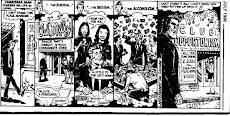Every single thing has meaning and gives a different message depending on where it is located and who sees it. For instance the color “red” implies different things. Red means stop when it is on a traffic light, stands for blood in medicine. If a woman wears a red dress, or a man wears a red armband, it means something different. So red in western culture means usually danger, hot, sexy, embarrassment, left-wing or radical. Whereas red brings different things in my mind since I grow up in Turkey. Traditionally, red was the color of the wedding gown for woman Still in some villages it is possible to see red gowns. Also, during the Sacrification Festival, the blood of a sacrificed animal can be put on the face.
Semiotics has been applied to film, theatre, medicine, architecture and other areas and generated interesting results. It includes study of how animal communicate (zoo semiotics), of nonverbal communication (kinesics and proemics), of aesthetics, of rhetoric, of visual communication, of myths and narratives, of anything that allows us to make meaning and sense of the world. (Danesi, 1994)
Semiotics is concerned how the meaning is generated in "texts" (films, television programs, fashion, foods, etc.). The meal with steak, mashed potato, and apple-pie conveys meanings beyond the food. It shows status, taste, sophistication, nationality, and so on. (Berger, 1982).
Semiotics is one of the approaches to Media Education and new media literacy. It opens a new way to the study of Media Literacy. We can not only study the alphabet of deaf-mutes, religious symbols but also study the commercials, sit-coms, soap-operas, and bulletin boards. In a sense, we all are using, deconstructing, learning, and reading signs even though we never studied Semiotics. We learn new signs everyday as the signs evolves continually in their meaning or significance all the time.
Imagine a web page which will be viewed by many people. How could these people from many backgrounds, cultures view this page? First the language of the web page becomes an issue not everybody in the world is fluent in English. So our page should include more than one language to help the users.
http://euphrates.wpunj.edu/faculty/yildizm/SP/



No comments:
Post a Comment